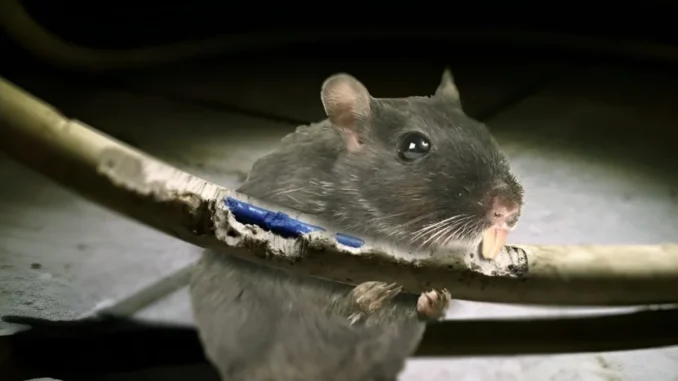
The Persistent Gnawing: Why Rats Chew on Everything
When rats chew, they often damage things. Call 07725933344 to prevent dangers posed by rats. We offer safe and affordable rat control services
Rats. Those ubiquitous rodents are notorious for their chewing habits. From electrical wires to wooden furniture, seemingly nothing is safe from their persistent gnawing. But why do they do it? It’s not just mischievousness; it’s a complex behavior driven by several crucial factors.
Keeping Those Teeth in Check: Perhaps the most significant reason is the constant growth of their incisors. Unlike our teeth, a rat’s incisors grow continuously throughout its life. To prevent these teeth from becoming overgrown and interfering with eating, rats need to gnaw regularly to wear them down. This constant chewing is essential for their survival; overgrown teeth can severely hinder their ability to feed and even cause painful infections.
Exploration and Sensory Input: Rats rely heavily on their sense of touch and taste. Gnawing allows them to explore their environment and gather information about potential food sources or dangers. The texture and taste of an object can tell them a lot about its properties, helping them identify safe materials from hazardous ones. This exploratory chewing is particularly pronounced in young rats, as they learn about their surroundings.
Nest Building and Territory Marking: Chewing plays a role in nest construction. Rats use shredded materials to create comfortable and secure nests, and they achieve this through gnawing on suitable materials like cardboard, fabric, or wood. Furthermore, the scent glands in their saliva are deposited onto the chewed objects, leaving behind a scent mark that communicates territorial boundaries to other rats.
Dietary Needs: While not the primary reason, chewing can also contribute to a rat’s nutritional intake. Some materials, such as wood or certain plastics, may contain trace minerals that supplement their diet. However, this is not a reliable source of nutrition and should not be considered a primary driver of their chewing habits.
Stress and Boredom: In captive situations, such as in laboratory settings or when kept as pets, excessive chewing can be a sign of stress or boredom. Rats are intelligent and active animals, and a lack of stimulation or an unsuitable environment can lead to increased gnawing as a way to alleviate anxiety.
Prevention:
Understanding the reasons behind a rat’s chewing habits is crucial for effective prevention. At Pest Portal Zimbabwe, we offer affordable, reliable and professional rodent pest control services. Moreover, securing food properly, eliminating clutter that could provide nesting materials can help mitigate damage. In conclusion, the seemingly destructive behavior of rats gnawing is fundamentally a survival mechanism, a form of sensory exploration, and a means of nest building and communication. Understanding these underlying reasons allows us to better manage their behavior and prevent damage, ultimately promoting a safer coexistence.
